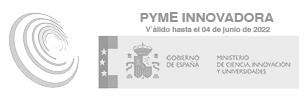Caring for people with epilepsy involves providing health care and social services to reduce the morbidity, premature mortality and negative psychosocial effects to which it is associated. Providing quality care for epilepsy is challenging because of its complexity, chronicity and considerable comorbidity.
The care needs of people with epilepsy are multifaceted and should receive great attention from policymakers in all countries, as there are considerable gaps in policy and care available to them worldwide. Access to health care for people with epilepsy varies considerably from country to country and within countries, and there are unmet needs in all countries.
Las necesidades de atención sanitaria de las personas con epilepsia y sus familias pueden considerarse como un modelo asistencial escalonado: desde el diagnóstico inicial hasta los tratamientos no farmacológicos (por ejemplo, la cirugía) para la epilepsia farmacorresistente. El tratamiento de las afecciones comórbidas debe ser un componente esencial en todos los niveles de atención. Los equipos interprofesionales (por ejemplo, médicos, enfermeros, farmacéuticos, terapeutas y trabajadores sociales) para prestar una atención centrada en la persona también son importantes en el modelo escalonado. Se debe hacer hincapié en la atención basada en la comunidad para aumentar el acceso de todas las personas que necesitan servicios relacionados con la epilepsia. Los servicios sociales y educativos deben proporcionar apoyo individualizado en todos los niveles de atención y deben continuar, según sea necesario, incluso cuando la persona ya no tenga crisis.

Policymakers should ensure that there is sufficient data on the population and the health care system to determine the need for epilepsy care, assess the care provided, determine the appropriate training of professionals, provide guidelines for quality health care, and allocate the necessary resources to ensure that people living with epilepsy have access to adequate health and social services.
There are examples of countries where comprehensive epilepsy care is provided. The WHO Epilepsy Treatment Shortage Reduction Programme has demonstrated that epilepsy care can be cost-effectively integrated into the primary health care system in resource-poor settings. Through pilot projects in Ghana, Mozambique, Myanmar and Viet Nam, the programme has enabled 6.5 million people to have access to epilepsy care facilities.
Get to know more about the World Health Organization report: Epilepsy: a public health imperative















